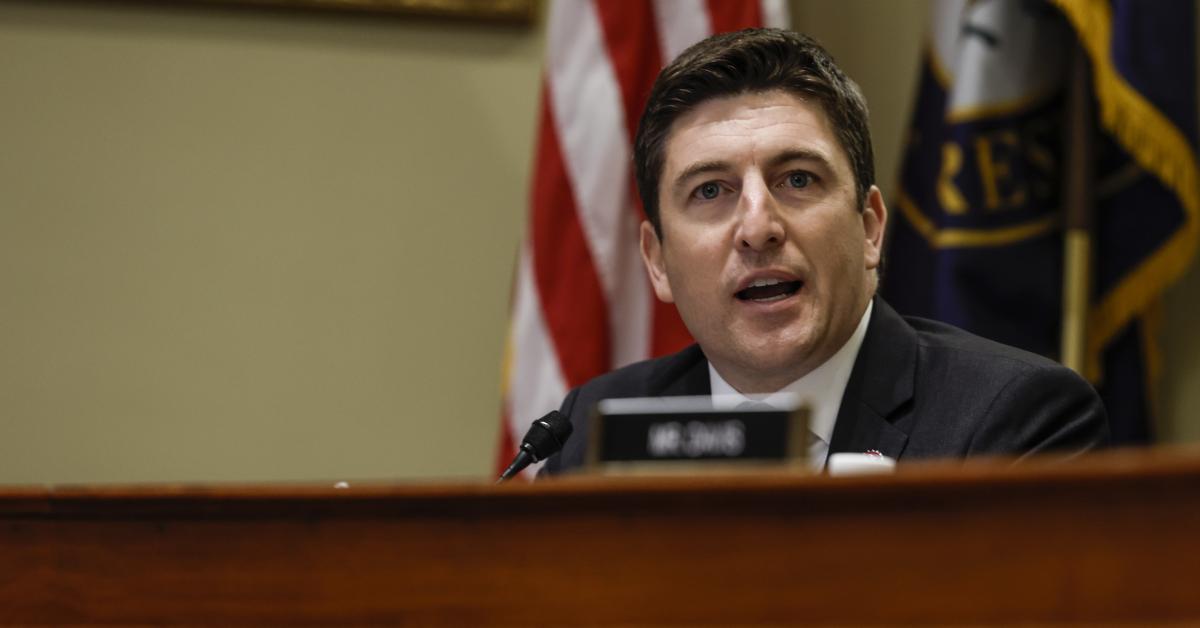We support our Publishers and Content Creators. You can view this story on their website by CLICKING HERE.

The House committee that oversees election integrity demanded Monday the massive online Democrat fund-raising platform ActBlue disclose to Congress how it verifies the identity of donors before accepting money, saying it fears Iran, China, Russia and Venezuela may be exploiting weaknesses to inject foreign funds into the 2024 election.
“Our investigation has indicated that these actors may be exploiting existing U.S. donors by making straw donations without the individuals’ or your platform’s knowledge,” House Administration Committee Chairman Bryan Steil wrote in a letter to ActBlue CEO Regina Wallace-Jones that warned his committee would soon issue subpoenas.
Steil said he was concerned about the fund-raising platform’s security practices after ActBlue disclosed to his committee last year that it does not require from donors on all transactions the credit card verification value (“CVV”) associated with the credit or debit card used by the contributor, a key protection against identity fraud and money laundering.
“You explained that your platform did not require contributors to provide their CVV when making an online contribution in all transactions,” he wrote.
You can read the full letter here.
“I write today to demand information on ActBlue’s donor verification policies and the potential for foreign actors, primarily from Iran, Russia, Venezuela, and China, to use ActBlue to launder illicit money into U.S. political campaigns,” he added.
Steil’s letter demanded that ActBlue turn over to his committee:
- Any changes to ActBlue’s CVV verification policy since October 2023;
- All documents relating to contributions ActBlue has processed via prepaid cards, including a breakdown of any contributions from cards originating outside the United States;
- Any entities that ActBlue has deplatformed due to a decision “not to process” by any third-party payment processors or because the source of funding came from a foreign or sanctioned source;
- All reports received from U.S. citizens alleging unauthorized or fraudulent donations made in their names.
“The Committee is in the process of subpoenaing the items listed above. Given the critical importance of safeguarding the upcoming election, we strongly urge you to expedite the response to this inquiry,” he wrote.
Monday’s letter came a week after Steil and Sen. Ron Johnson, R-Wis.,, asked Treasury Secretary Janet Yellen, FBI Director Christopher Wray and Director of National Intelligence Avril Haines to provide them access to any Suspicious Activity Reports (SARs) related to monies passing through ActBlue that were filed by U.S. financial institutions as part of their money-laundering monitoring activities.
SARs are some of the most sensitive documents the industry files with the government. Federal law requires banks to file SARs no later than 30 days after the date of initial detection of transactions that raise red flags, such as cash movements exceeding $10,000 and suspicious activity that might signal criminal activity like money laundering or tax evasion.
“We request that the Department make available to CHA and PSI staff all Suspicious Activity Reports (“SARs”) related to ActBlue, specifically regarding fraud, money laundering, identity theft, and the use of prepaid credit, debit, and gift cards in this context,” the lawmakers said.
It also requested classified briefings on possible foreign money laundering into the election from U.S. intelligence and the FBI.
ActBlue did not immediately respond to an email message Monday seeking comment. The group has steadfastly denied wrongdoing but says it has been cooperating with ongoing investigations.
“Democratic and progressive campaigns have trusted ActBlue’s two-decade-long track record of innovation and dependability to deliver during big fundraising moments,” ActBlue said in a statement in June celebrating its 20th anniversary in business.
Steil has sponsored legislation to crack down on weak security practices in online political fund-raising, and he told the John Solomon Reports podcast earlier this month he believes many Americans may be unwitting victims of a fraudulent fund-raising scheme.
“The great concern is that people would be unwitting straw donors, meaning an individual is simply typing in their information and then using a financial payment not associated with that individual,” Steil said.
The practice has been given the name “smurfing” by campaign finance watchdogs. The practice evades FEC reporting requirements and creates the illusion of thousands of small-dollar donors to a campaign. Both Steil and Johnson began probes into ActBlue fund-raising back in 2023.
Two months ago, Steil’s committee completed a computer analysis of hundreds of thousands of small donations passing through ActBlue to Democrat candidates, and the finings triggered concerns that donors living in low income areas were being credited with making hundreds of donations through ActBlue far beyond their financial means.
Those findings led Steil to refer evidence to attorneys general in five states for possible criminal or civil investigation under consumer fraud statutes. In a few short weeks, those investigations expanded to 19 states.
Earlier this month, Republican consultant in Wisconsin filed a lawsuit in Waukesha County Circuit Court alleging his identity and an old campaign email was used to make hundreds of donations without his permission on a credit card from California. Mark Block filed the suit under Wisconsin’s organized crime laws, saying he believed he was an identity theft victim of an ongoing racketeering scheme. His suit named a “John Doe” donor as defendant and asked a court to issue an injunction prohibiting further use of his identity and emails.
“Given Plaintiff’s political leanings, he would never consider or consent to donating to any of the ActBlue Campaigns,” the lawsuit said.
Block’s lawsuit exposed concerns about straw donations, contributions using the identity of one person but with money from another.
Back in the 1990s, the Democratic Party was rocked by the “Chinagate” scandal that revealed that Chinese-tied businessmen made millions of straw donations to Democrats to help Bill Clinton’s re-election efforts in 1996. Dozens went were convicted and some went to prison.
That scandal occurred in an era before credit cards and online fund-raising were permitted in federal elections, and it required the source of the money to reimburse a donor willing to use their name to make the straw donation.

 Conservative
Conservative  Search
Search Trending
Trending Current News
Current News 





